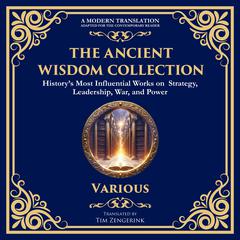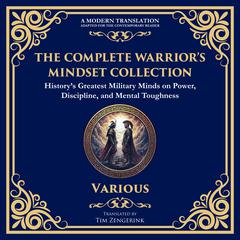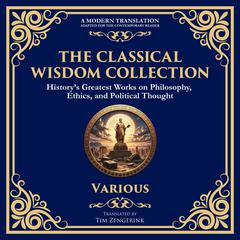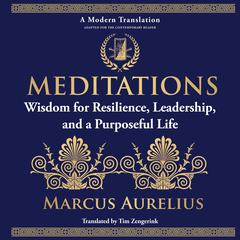 Play Audiobook Sample
Play Audiobook Sample
The Meditations of Marcus Aurelius Audiobook
 Play Audiobook Sample
Play Audiobook Sample
Quick Stats About this Audiobook
Total Audiobook Chapters:
Longest Chapter Length:
Shortest Chapter Length:
Average Chapter Length:
Audiobooks by this Author:
Publisher Description
Marcus Aurelius ruled the Roman empire from AD 161-180. He wrote the 12 books of the Meditations as a source for his own guidance and self-improvement. It is possible that large portions of the work were written at Sirmium, where he spent much time planning military campaigns from 170 to 180. Some of it was written while he was positioned at Aquincum on campaign in Pannonia, because internal notes tell us that the first book was written when he was campaigning against the Quadi on the river Granova and the second book was written at Carnuntum.
It is unlikely that Marcus Aurelius ever intended the writings to be published and the work has no official title, so "Meditations" is one of several titles commonly assigned to the collection. These writings take the form of quotations varying in length from one sentence to long paragraphs.
George Long Translation
Download and start listening now!
"I've been told Marcus Aurelius' Meditations is a series of dull platitudes. I think, however, that its short, direct, and unpretentious entries are powerful reminders: life is short: "The happiness of your life depends upon the quality of your thoughts, therefore guard accordingly; and take care that you entertain no notions unsuitable to virtue, and reasonable nature.""
— Andrew (5 out of 5 stars)
The Meditations of Marcus Aurelius Listener Reviews
- — John Hembling, 4/1/2021
-
" Spent the afternoon reading Meditations by Marcus Aurelius. The book reads like the citizen's manual for vulcans. Loved it!! I think I'll re-read it a few more times after I'm done with this 100 book challenge (although next time I'll skip all the parts about god.. can't blame Marcus though, since it was written almost two millennia ago). "
— Lex, 2/9/2014 -
" My personal Bible. I keep it handy at all times. What's cooler than a Roman Emperor who focuses on virtue rather than material/physcial rewards. "
— John, 1/31/2014 -
" Filled with great life lessons. This book is a must read for living a productive healthy life. "
— Kyle, 1/24/2014 -
" This is a life changing book and I'm only on the fourth book currently. Absolute treasure. "
— Umair, 1/16/2014 -
" The translation was less elegant than its english counterpart found on Gutenberg.org. Nevertheless the introductory notes were insightful and interesting. It was also funny to see how Aurelius' philosophy is quite similar to buddhist philosophy and psychology. "
— Judith, 1/4/2014 -
" Interesting read. Not exactly philosophy, just an Emperor trying to discover what it takes to be a truely good person. Some of the insights are timeless and show how little humans have changed since ancient times, in spite of our scientific and technical advances. "
— Jamest., 12/29/2013 -
" see where Shakespeare stole some of his best lines. "
— Mike, 12/16/2013 -
" Very Insightful, very easy read, easy to follow. This is the book i pick up when i'm down, read and it lifts up my spirits..... "
— Milo, 12/10/2013 -
" a book i will keep reading my whole life - insightful, beautiful, elegant, wise and honest "
— Euny, 11/11/2013 -
" The stoics always write well. "
— Peter, 11/4/2013
About Marcus Aurelius
Marcus Aurelius (121–180 CE) was a Roman emperor and Stoic philosopher. Though his reign was threatened by war and disease, he successfully held the empire together and is associated with the Golden Age of Rome. His Meditations has long been considered one of the greatest books of the era and remains a cornerstone of Western philosophical appreciation of Stoicism.










































